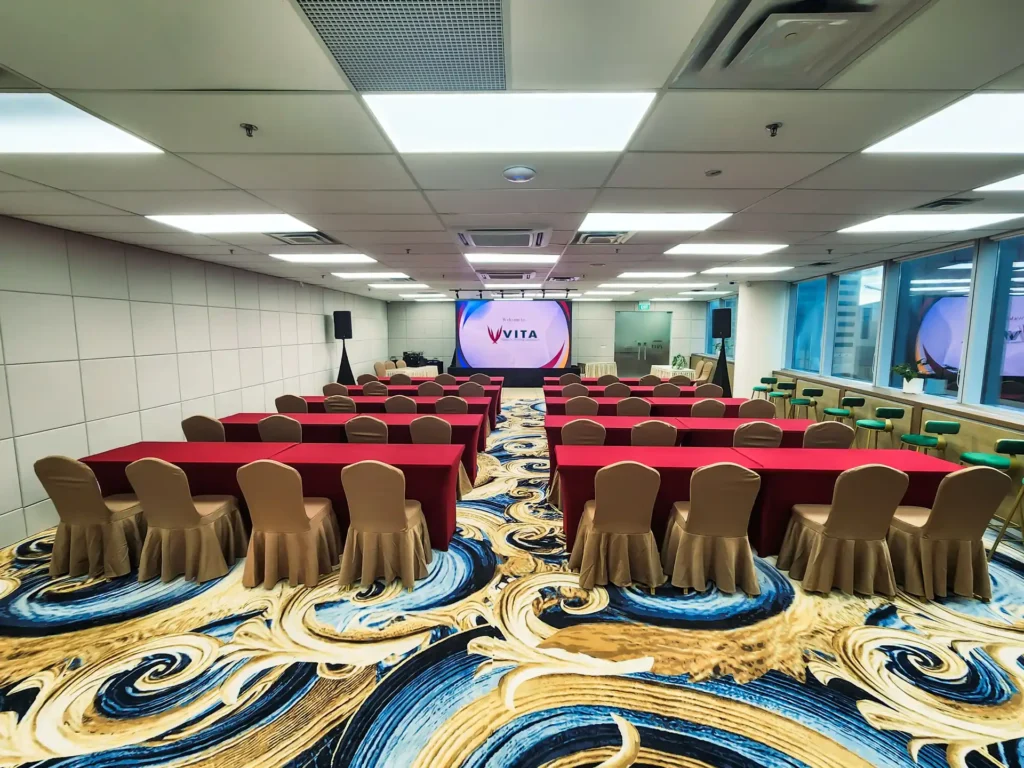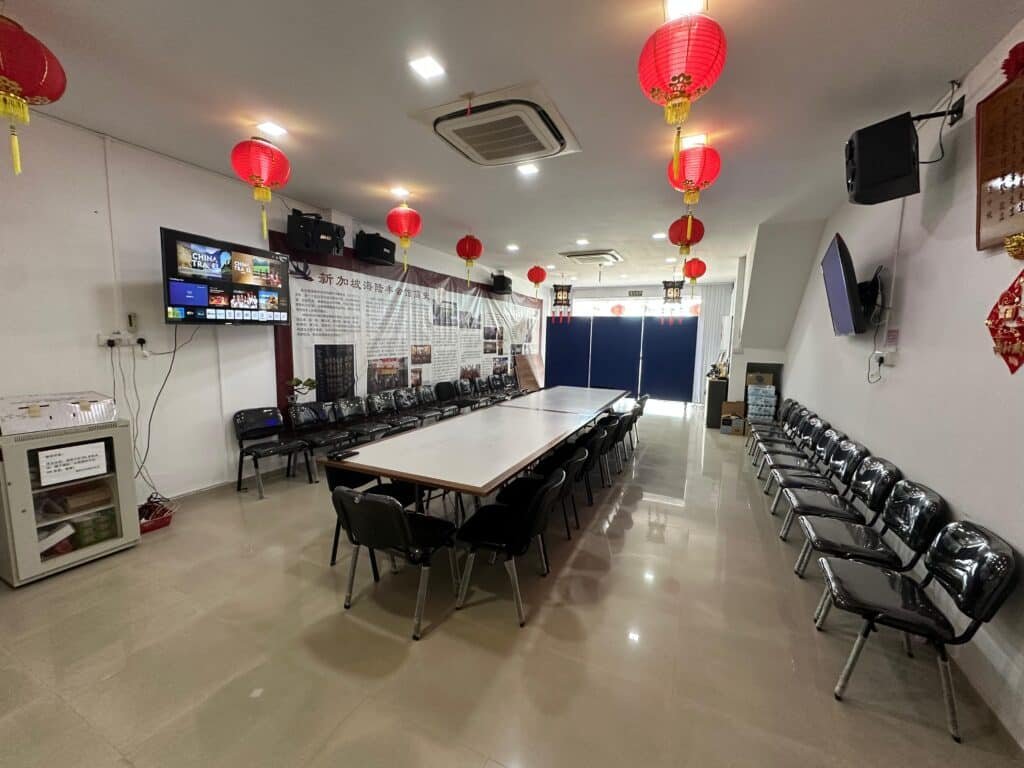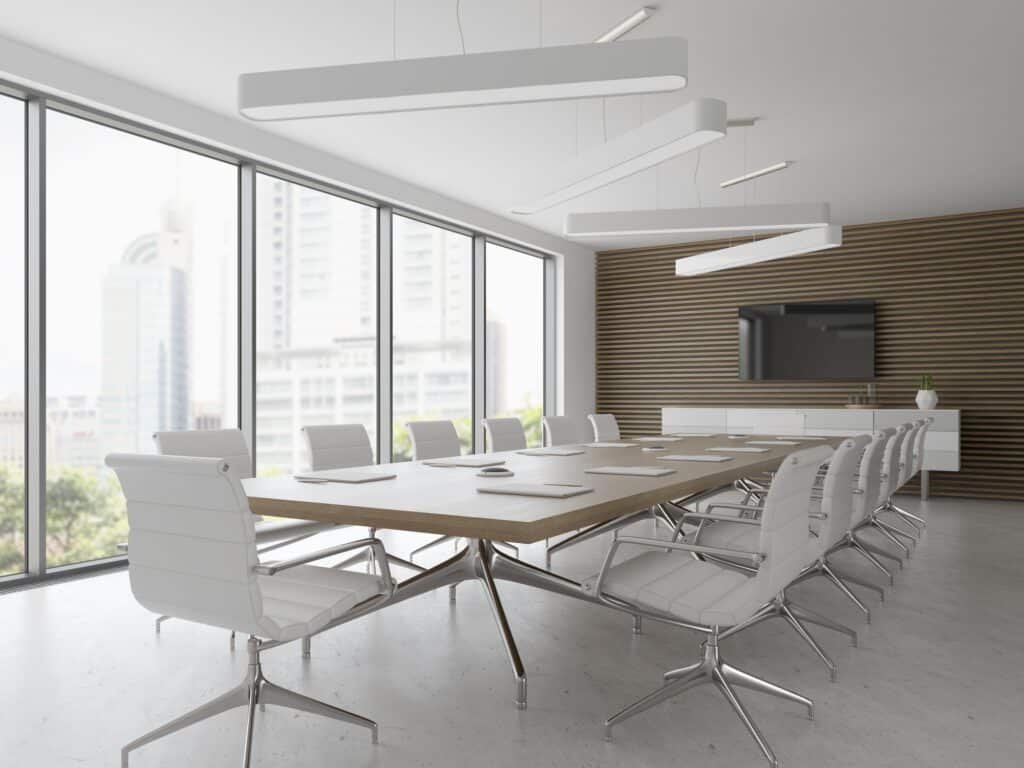Effective meetings are the cornerstone of productive teamwork, but noise distractions can quickly derail focus, reduce engagement, and waste valuable time. In today’s fast-paced work environment, especially in open-plan offices and shared workspaces, maintaining acoustic comfort has become a critical factor in meeting success.
At Vita Venue, we specialize in creating professional meeting environments designed for clarity, comfort, and productivity. Whether you’re hosting corporate meetings, workshops, or hybrid conferences, our spaces in Singapore’s Central Business District are acoustically optimized to minimize distractions and enhance communication.
In this comprehensive guide, we’ll explore how to reduce noise distractions in meetings, supported by real insights, research, and actionable techniques your organization can implement immediately.
What Causes Noise Distractions During Meetings?
Noise distractions can come from both internal and external sources. Understanding where they originate helps you design more effective solutions.
| Source | Example | Impact |
|---|---|---|
| External Noise | Street traffic, construction, hallway chatter | Interrupts conversation and concentration |
| Internal Noise | Loud typing, paper shuffling, mobile notifications | Reduces meeting efficiency |
| Acoustic Reflection | Poor sound insulation or echo | Makes speech unclear or distorted |
| Technical Noise | Equipment hum, feedback from microphones | Disrupts hybrid or virtual meetings |
A survey by the Harvard Business Review (2023) found that 65% of employees cited “background noise” as a major reason for unproductive meetings. The takeaway? Noise control isn’t just a comfort issue, it’s a productivity issue.
Why Reducing Noise Distractions Matters
Noise affects not only what we hear but how we think, communicate, and collaborate. In meetings, where clear communication is essential, excessive noise can cause frustration and misunderstandings.
Key benefits of a quieter meeting environment:
- Improved Focus: Fewer interruptions mean deeper engagement.
- Better Communication: Clearer audio helps participants retain key points.
- Enhanced Productivity: Discussions stay on track without repeated clarifications.
- Professional Impression: A well-controlled environment reflects organizational discipline.
For teams in dynamic corporate hubs like Singapore, investing in better meeting acoustics pays off through higher employee satisfaction and better decision-making outcomes.
Proven Strategies to Reduce Noise Distractions in Meetings
Below are the most effective, research-backed methods to control and reduce distractions during meetings: whether onsite or virtual.
1. Choose the Right Venue
Selecting the right environment sets the foundation for noise control.
At Vita Venue, our meeting rooms are built with:
- Acoustic wall panels and sound-absorbing materials
- Sealed doors and carpeted floors to reduce echo
- Balanced room layout for natural sound distribution
These design elements help ensure every voice is heard clearly without external interference.
2. Use Acoustic Treatments
If you manage your own meeting space, consider adding:
- Wall panels: Reduce echo and absorb speech reflections
- Ceiling baffles: Trap high-frequency noise from air-conditioning systems
- Carpet or rugs: Minimize sound from footsteps and furniture movement
3. Manage Technology and Equipment
Microphones, projectors, and video conferencing tools can introduce unwanted noise.
To manage this effectively:
- Use directional microphones to isolate the speaker’s voice.
- Mute unused microphones during hybrid meetings.
- Use noise-canceling headsets for remote participants.
- Regularly test AV equipment to prevent hums and static noise.
A 2024 workplace study by Gartner found that teams using noise-canceling technology reported a 32% improvement in meeting focus compared to those without it.
4. Establish Meeting Etiquette
Human behavior often contributes more to distraction than physical noise. Encourage meeting participants to follow these simple etiquette rules:
- Silence phones and notifications
- Avoid side conversations or typing during presentations
- Speak one at a time
- Keep doors closed to limit outside sound
Having a short “noise policy” before the meeting begins can go a long way in maintaining discipline.
5. Optimize Room Layout
How furniture and people are arranged can influence sound quality.
For smaller meetings, arrange chairs in a semi-circle to minimize sound bouncing.
For larger meetings:
- Keep the speaker’s position central
- Avoid placing participants too close to reflective surfaces like glass walls
- Use portable dividers to contain sound
6. Leverage Workspace Design
A well-designed workspace plays a crucial role in overall meeting quality.
If your office layout contributes to noise, consider reading our article on How Workspace Design Boosts Productivity, it explores how design, lighting, and sound management enhance daily work performance.
How Vita Venue Helps You Create Distraction-Free Meetings
At Vita Venue, we don’t just rent spaces, we design experiences that foster clarity, creativity, and collaboration.
Our meeting venues in Singapore feature:
- Advanced soundproofing systems
- High-quality AV equipment for hybrid sessions
- Comfortable seating layouts for productive engagement
- Dedicated support staff for setup and on-site coordination
We understand that professionalism and privacy go hand-in-hand. Whether you’re hosting a press briefing, training session, or executive meeting, our environment ensures your message comes through loud and clear, without distractions.
Case Study: Acoustic Optimization at a Singapore Corporate Venue
In early 2025, a fintech company booked Vita Venue for a hybrid quarterly meeting. The team previously struggled with echo issues and cross-talk interference during online sessions.
Our solution:
- Installed temporary acoustic wall panels
- Adjusted mic placements
- Implemented sound zoning using portable dividers
Outcome:
Noise complaints dropped by 80%, and the company reported a 25% increase in meeting efficiency based on post-event surveys. This demonstrates how minor acoustic improvements can significantly boost communication quality.

Conclusion: Create Focused and Productive Meetings with Vita Venue
Noise distractions might seem like small inconveniences, but they can accumulate into significant productivity losses. In a professional setting, where clarity drives decision-making, managing sound becomes a strategic advantage.
At Vita Venue, we provide purpose-built spaces designed to eliminate distractions and empower communication. Our venues combine modern acoustic engineering, ergonomic design, and expert support to ensure every meeting achieves its goals efficiently.
If your organization values focus, professionalism, and seamless collaboration, we invite you to host your next meeting with us. Discover how our thoughtfully designed spaces can transform your meeting experience, and help you achieve better results, one discussion at a time.
FAQs (Frequently Asked Questions)
What is the biggest cause of noise distraction in meetings?
The most common sources include external traffic sounds, hallway chatter, and poor room acoustics. Addressing these early ensures smoother communication.
Can technology help eliminate background noise?
Yes, noise-canceling microphones and AI-based audio filters can effectively minimize unwanted sounds in both physical and virtual meetings.
How can we maintain focus in open office meeting areas?
Use mobile partitions or soundproof booths to isolate the space. Scheduling meetings during quieter hours also helps reduce background noise.
What’s the ideal room size for small team meetings?
A 15–25 sqm room typically accommodates 6–10 people comfortably while maintaining acoustic balance.
How often should meeting spaces be audited for noise?
Every 6–12 months. Regular assessments ensure your workspace continues to meet acoustic and productivity standards.


